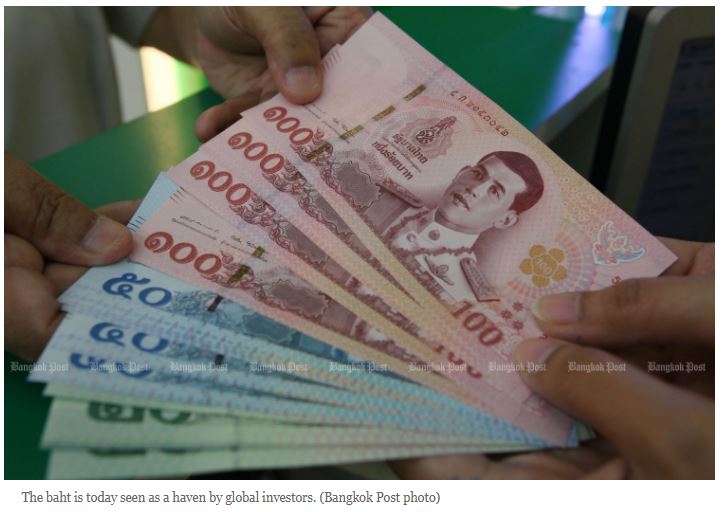Thailand: Surging baht shatters expat dreams of easy retirement
Brian Maxey moved to Thailand from the United Kingdom expecting his sterling pension to afford him an easy retirement. Instead, he’s finding it harder to meet his visa’s financial stipulations because of the strong baht.
The former aircraft technician easily bought a townhouse, pickup truck and motorcycle when he arrived at the age of 55 two decades ago. Back then the pound bought about 60 baht, but now it fetches a little less than 38 baht.
“It was a cheap place to live then,” Maxey said in an interview in the coastal city of Pattaya, which is popular with European retirees. “It’s not anymore.”
The pressure on foreign pensioners is just one example of how the baht’s sharp appreciation is rippling through Thailand. The currency is the world’s top-performer against the dollar over five years, hurting export competitiveness and putting the economy on course for the weakest growth since 2014.
The government issued almost 80,000 retirement visas last year, a climb of 30% from 2014. To qualify, foreigners must show a deposit of 800,000 baht in a Thai bank or have a monthly income of 65,000 baht. Another route is to have income and deposits totaling 800,000 baht combined.
Britons accounted for the largest number of retirement visas in 2018, Immigration Bureau data shows. They were followed by Americans, Germans, Chinese and Swiss pensioners seeking affordable, sun-dappled golden years.
Once best known for crashing and sparking the 1997 Asian financial crisis, the baht is today seen as a haven by global investors. A trade surplus and annual foreign tourism receipts exceeding $60 billion underpin its resilience.
The currency has appreciated more than 6% against the dollar so far in 2019, the best performer in a basket of Asian economies tracked by Bloomberg.
It’s likely to stay resilient, said Masakatsu Fukaya, an emerging-market currency trader at Mizuho Bank in Tokyo. There could be more upward pressure if firms relocate production to Thailand to skirt US tariffs on China-made products, according to Fukaya.
Some pensioners are already voting with their feet, according to Niels Colov, who moved from Denmark about 40 years ago and helps to organise a club for expats in Pattaya.
“There’s an exodus of foreigners from this area to Vietnam, Cambodia and the Philippines,” he said. “We’re talking thousands of people.”
Some of those remaining may have to cut back spending, said Christian Foerster, an Austrian who retired to Thailand 20 years ago.
“There’s an enormous change,” he said. “Everything is more expensive. But it’s about adjusting, adapting and living modestly.”
At the same time, the cost of living in Thailand remains lower than in developed nations such as the United States or in Europe, and officials continue to promote it as a retirement destination.
Baht strength leaves Pattaya retiree Maxey’s £1,000 pension far short of the minimum monthly requirement. As a result, he maintains the equivalent of a £22,000 deposit to satisfy the bank savings rule when renewing his visa.
“That’s a lot of money to hold in a bank account that you can’t touch,” Maxey said, while adding he wants to stay on in Thailand despite the difficulties as he’s settled in the country.
Source: https://www.bangkokpost.com/business/1764889/surging-baht-shatters-expat-dreams-of-easy-retirement


 English
English




